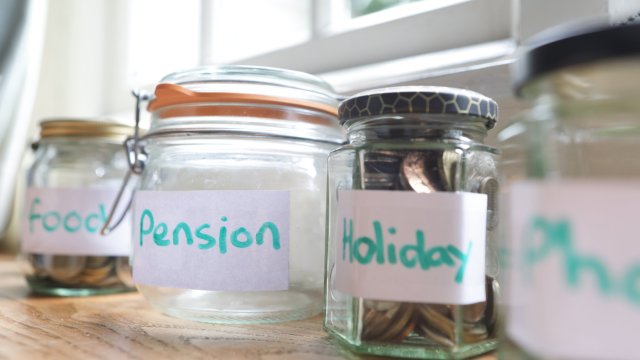I retired early and have a £75k pension pot. Should I take my 25% tax free lump sum in one go?

In our weekly series, readers can email in with any question about retirement and pension saving to be answered by our expert, Tom Selby, head of retirement policy at investment platform AJ Bell. There is nothing he doesn’t know about pensions. If you have a question for him, email us at money@inews.co.uk.
Today’s question is from Bruce in Devon, who writes: I’m 55, have retired early and have a £750,000 pension pot. I’m wondering whether to take the 25 per cent tax-free lump sum in one go to buy a holiday home in Spain to enjoy my retirement in. Can you let me know what I need to consider before doing this?
Tom Selby replies: I’m jealous! It sounds like you’re preparing for the retirement dream, but it’s worth spending some time considering your finances before making the leap.
The ability to access up to 25 per cent of your retirement pot tax-free is a key benefit of pension saving and, crucially, is generally better understood and appreciated than other parts of the pension tax system. Indeed, in many cases the primary motivation behind people accessing their pension for the first time is getting this tax-free cash. This might be because they have earmarked the money for something specific, such as paying off debts, buying a new car or, in your case, buying a property abroad.
All-too-often, however, accessing tax-free cash as soon as possible will be driven by a fear a future government will remove the benefit. This can lead to savers making decisions that aren’t necessarily in their long-term interests. This is one of the reasons a central aim of pension tax policy needs to become giving savers certainty over the rules, including around tax-free cash.
The rules and investment growth
Current pension rules allow you to access a quarter of your pension tax-free from age 55 with the maximum tax-free amount for most people set at £268,275. This ‘normal minimum pension age’ is set to rise to 57 in 2028.
You should think carefully before taking your tax-free cash, particularly as 55 is very early to be accessing your fund. You will be removing the money from an environment where it can grow tax-free, so at the very least make sure you have a plan for it. If you just take the money out of your pension and put it in a bank account earning little to no interest, its value will quickly be eaten away by inflation.
Take, for example, someone with a £200,000 pension who decides to take their maximum 25 per cent tax-free cash of £50,000 at age 55 and puts it into a current account paying 0 per cent interest. If they make no further pension contributions, they will receive no further tax-free cash entitlement – even if their remaining £150,000 fund is left untouched and benefits from investment growth.
If we assume that remaining fund grows by 4 per cent per year after charges, by age 65 it could be worth around £222,000, alongside the £50,000 tax-free cash they withdrew at age 55 (i.e. £272,000 in total).
If, however, they had left their entire £200,000 fund untouched and enjoyed the same 4 per cent investment growth post-charges, by age 65 they could have a total fund worth around £296,000, with £74,000 available tax-free. That’s almost 50 per cent more tax-free cash than if they had accessed their pot at age 55.
Partial ‘crystallisation’
If your heart is set on buying a property in Spain, make sure you know what you are getting into and familiarise yourself with the tax system there. A financial adviser might be able to help you navigate this process.
This should also allow you to figure out exactly how much money you need to buy the property. Given your pension is worth £750,000, the maximum tax-free cash available would be £187,500 (i.e. 25 per cent of £750,000). If you accessed 25 per cent of your fund today and made no further contributions to your pension, you would have no further tax-free cash entitlement – even if your residual fund grows in value.
You could consider partially ‘crystallising’ some of your pot in drawdown. Crystallising in this context just means choosing a retirement income route. This could allow you to generate the tax-free cash you need, while leaving the ‘uncrystallised’ part of your pension – including the attached tax-free cash entitlement – untouched and with the ability to continue growing.
It’s also worth remembering that by withdrawing money out of your pension, you are moving it from an environment where it will usually be free from inheritance tax (IHT) to one where it will form part of your estate.
That is not to say, of course, that people shouldn’t access their tax-free cash, but simply to emphasise the importance of considering what you plan to do with the money when you access it. And whatever you do, don’t let it fall victim to the ravages of inflation.
You should also think carefully about the sustainability of your retirement income plan. A £750,000 pension is clearly substantial, but if you’re planning to live off that money (minus any tax-free cash you withdraw) alone from age 55 then it might need to last 30 or even 40 years. What’s more, any state pension entitlement you have won’t kick in until age 67.
Can my private pension be paid abroad?
If you have a private pension, this can be paid to you wherever you are in the world. Anyone thinking about retiring abroad should speak to their pension scheme or provider first to check how they will pay your income. Some will only pay into a UK bank account, for example, while others might pay into an overseas account if you ask.
Some schemes may also charge you extra to pay your pension into an overseas account and your income could be paid in pounds sterling, exposing you to currency fluctuations.







